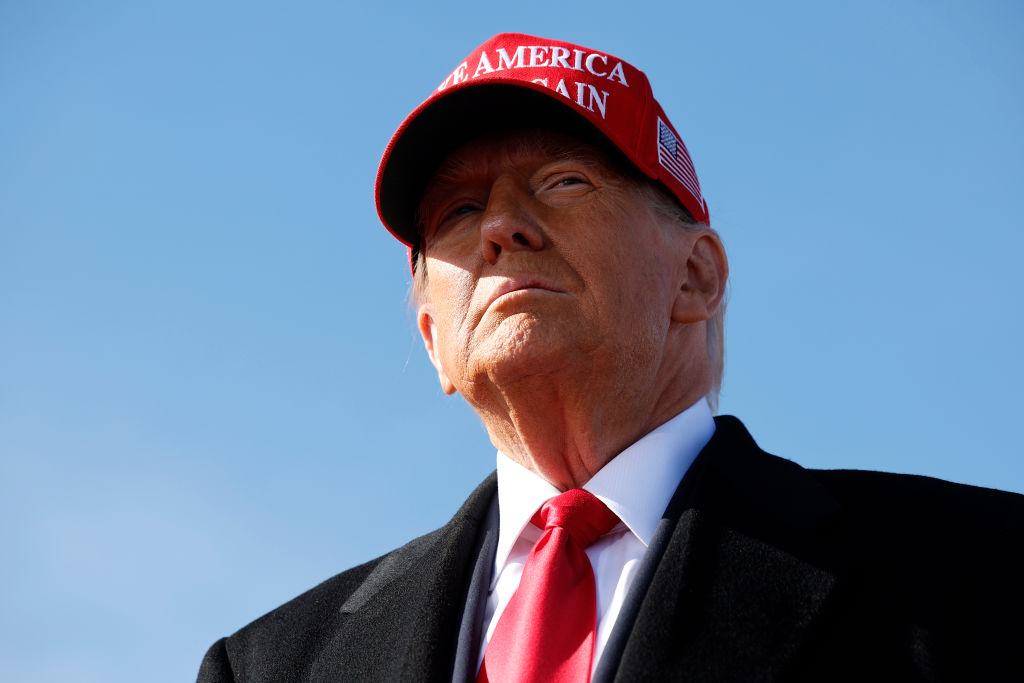After a sharp skirmish over tariffs and immigration, Mexican president Claudia Sheinbaum called President-elect Donald Trump to discuss future relations between the two countries. Both came out claiming victory: Trump, by noting Sheinbaum’s assurance that the Mexican government would move to stop the migrant caravans desperately trying to reach the U.S. border before the new administration—and consequently stricter border control—arrives; Sheinbaum, by telling her public that she made no new concessions in the face of Trump’s tariff threats. Both happen to be right, but a thorough examination of the situation shows that Trump is in a good position to get what he wants from Mexico whether Sheinbaum likes it or not.
It may come as a surprise to some, but Sheinbaum is correct that she did not make any new concessions to Trump by promising to stop migrant caravans on their way to the border ahead of his inauguration. The Mexican government has actually been engaged in disrupting migrant caravans in a number of ways for almost a year now. This is the result of pressure from the Biden administration, after Democrats finally realized in the lead-up to the election that their open-borders immigration policy was wildly unpopular with the public. The result was an attempt to lower the salience of the issue by reducing border crossings, including with the help of Mexico, as well as a brief attempt to pivot publicly towards being tough on the border (remember that supposedly bipartisan immigration bill?).
Unsurprisingly, voters didn’t buy it, but some of the efforts did reduce illegal immigration numbers from the ludicrous highs reached during the earlier period: the Border Patrol reported just 100,000 enforcement encounters at the southern border in September of this year, compared to over 300,000 in December of last year.
Sheinbaum’s argument that she made no new concessions allows her to save face before a Mexican public that has always nurtured a strong sense of resentment towards U.S. interference in their domestic affairs (as well as a strong antipathy towards the figure of Donald Trump). Yet the reality of extant Mexican cooperation with American border enforcement is proof of the leverage all American presidents have over their Mexican counterparts. Sheinbaum may have greater ideological affinity for the Biden administration, but she is not deploying scarce Mexican resources to disrupt migrant caravans out of the goodness of her heart. The Biden administration prefers a quieter approach towards Mexican diplomacy than Trump’s blustering threats of tariffs and future economic devastation, but ultimately they are simply different techniques for employing the same weapon: American economic power in Mexico.
Mexico is thoroughly dependent on the purchasing power of Americans. The vast majority of all Mexican exports flow into the United States, and four percent of the country’s GDP consists of remittances from persons living and working in the U.S. Mexico is simply not equipped to resist significant pressure from an American president determined to extract reasonable concessions from its southern neighbor, whether those pressures come quietly from a Democratic president or loudly from a Republican one.
Sheinbaum will, of course, have to preserve her political capital as any politician does, and so she will speak with the opinions and prejudices of her voting base—which dislikes Trump and American meddling—in mind. But after all the rhetoric plays out, she’s perfectly aware that deals will have to be made and Mexico will have to play along with American priorities on cracking down on organized crime and immigration.
As a result, the coming years will probably see many more events that look a lot like what we saw this week: both sides claiming to their political bases at home that they have kept their promises, while the results on the ground conform to the policy goals of the Trump administration.
Read the full article here

